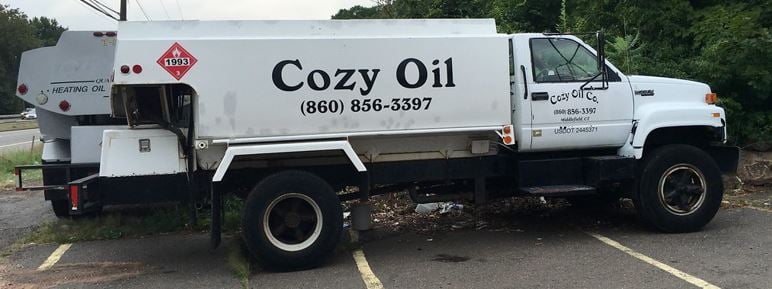Another Great Example of What a Clean Heat Standard Can Do for Us
Our organization has been advocating for a Clean Heat Standard (CHS) in both Massachusetts and Rhode Island. A...
In Massachusetts, both the legislative and executive branches are considering a Clean Heat Standard (CHS) to reduce emissions in the building sector. We’ve been writing a lot about the CHS lately – how it would help get climate funding for public housing, should encourage electrification, and would allow consumers more flexibility in home electrification. As the state starts getting into specifics, one thing is clear: a good CHS would apply to gas, oil, and propane, not electricity.
Massachusetts State Representative Bill Driscoll filed H. 3694, An Act Relative to a Clean Heat Standard. Meanwhile, the executive branch Department of Environmental Protection (DEP) has begun engaging the public as it prepares to propose regulations and establish a Clean Heat Standard. As DEP describes:
“The clean heat standard is a regulation that would apply to providers of heating energy in Massachusetts, notably gas utilities and providers of heating oil and propane. These obligated parties would be required to serve Massachusetts’ residential and commercial customers with gradually increasing percentages of clean heat services so that sales of fossil fuels are phased down. Over time, the clean heat standard would replace pipeline gas, fuel oil, and propane heat with heat pumps, clean district energy, weatherization, and other verified low-carbon options” (our note - watch out for the Trojan Horses of renewable natural gas and hydrogen). For DEP’s two-page summary, visit here.
We would like to see this policy go into effect by the legislative and/or regulatory route. In either case, the standard should be applied to all sellers of fossil fuel heating. To avoid distorting the market and to ensure fairness to all consumers, a CHS should apply equally to natural gas, heating oil, and propane. There are serious problems with exempting any of them.
The state’s primary policy for retrofitting buildings now is Mass Save. Unfortunately, Mass Save only reduces methane consumption by about one-fourth of what we need each year (less if we continue to allow new construction to heat with gas). Mass Save now allows gas utilities to convert customers to electric heat pumps, but only on a limited scale. Converting from gas to a heat pump is not considered cost-effective according to a test required by the Green Communities Act, which does not fully consider the fact that we need to stop burning gas to meet its greenhouse gas requirements under the Global Warming Solutions Act (GWSA) for 2030 and beyond. That’s right, the Bay State has two conflicting statutes on the books (the same problem applies in Rhode Island). A Clean Heat Standard would remove the conflict in favor of the GWSA.

Mathematics tells us that we need to crack the nut on gas to heat pump conversions because over half the homes and most of the commercial buildings in Massachusetts are heated by gas. If gas utilities are exempted, Massachusetts will fail to reach its target on building emissions.
Oil and propane are used in 29% of homes in Massachusetts. Exempting that many would also make it impossible to reach the GWSA requirements of 50% greenhouse gas reduction by 2030 or net zero by 2050.
These “delivered fuels” are also more expensive than gas and heat pumps. A consumer switching from oil or propane to a high-efficiency cold climate heat pump will save money over time. From a “dollars per ton” of carbon abated, we get more bang for our buck by switching people off oil and propane to heat pumps (learn more about that here).
A third reason oil and propane should not be exempted is that Mass Save currently offers incentives for oil and propane customers to install heat pumps with funds from a surcharge on electricity. That is terribly counterproductive at a time when we want to electrify buildings and vehicles. The obligation ought to be on suppliers of heating oil and propane, not on all electricity consumers. Note that gas customers pay into Mass Save twice – once as a gas customer and a second time as an electricity customer. Oil and propane customers only pay for their electricity usage.
Colorado has a CHS focused entirely on gas utilities, so it does exempt oil and propane. But in Colorado, over 60% of homes heat with gas, and just 5% heat for the delivered fuels.

Massachusetts and Rhode Island have among the highest electricity rates in the country. Those high rates are headwinds in our efforts to encourage the widespread adoption of heat pumps and electric vehicles. Unless we appropriately account for the indoor air quality improvements and greenhouse gas reductions that come with electrification, high electricity rates will continue to make conversions from gas heat uneconomic. While oil and propane conversions are economic over a system’s lifetime, high electricity rates do affect the rate of return.
Maine is the leading cold weather state when it comes to heat pump installations. But it is also far more dependent upon heating oil than Massachusetts. Eight-five percent (85%) of the customers served by Efficiency Maine heat by oil. Electricity rates are also significantly less in Maine than in Massachusetts and Rhode Island, making heat pumps more attractive. Plus, Maine now offers a special, lower, rate for customers with heat pumps.
Electricity supply is also getting less carbon-intensive every day as the states add renewable energy and as a growing number of communities adopt Green Municipal Aggregation. Today, and even more tomorrow, heating with electricity is desired from a greenhouse gas reduction perspective.
By including all three forms of fossil heat in the standard, we give suppliers options to seek out the least-cost ways to earn Clean Heat Credits. They can offer clean heat solutions to their customers and those of their competitors, whether residential or commercial. This aspect of the program design works in everyone’s favor by driving down the cost of compliance.
Our organization has been advocating for a Clean Heat Standard (CHS) in both Massachusetts and Rhode Island. A...
On Monday, those of us who were working to defeat a proposal in the Mass. House of Representatives that would roll...
Comments